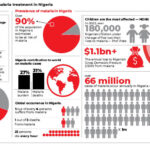In 1951, Ms Lacks, a black 31-year-old housewife from Baltimore, Maryland, began experiencing pain in her abdomen and abnormal bleeding. She was examined by gynaecologists at Johns Hopkins Hospital, who discovered a large mass on her cervix. As was the standard of care then, doctors sent a sample of her tumour to a lab for medical research before treating her for aggressive cervical cancer. Amazingly, while nearly all cell cultures died quickly in the lab, cells taken from Ms Lacks continued to multiply and didn’t age, making them “immortal”. The cell line, which was later dubbed “HeLa” after Ms Lacks’ first and last name, was sent to research labs around the world.
According to the World Health Organization (WHO), HeLa cells have led to the creation of the polio vaccine and advancements in HIV, cancer and infertility research.
However, the same properties that made the cells a scientific miracle also made them lethal. Months after her diagnosis, she died from cancer at just 31 and was buried in an unmarked grave. Scientific experiments and breakthroughs were possible because of her cells without her consent or that of her family. It was not until decades later that the Lacks family discovered what had become of her cells. Civil rights lawyer Ben Crump, who represented the family in the negotiations with Thermo Fisher, said the procedure done by doctors left her in pain at the end of her life. He said the mistreatment she received is similar to experiences suffered by other black Americans who have sought help from US doctors.
In 2021, the WHO held a ceremony to commemorate the many scientific breakthroughs made possible by Ms Lacks. The WHO Director-General Tedros Adhanom Ghebreyesus at a special ceremony in Geneva, Switzerland admitted that what happened to Henrietta was wrong. According to him “Henrietta Lacks was exploited. She is one of many women of colour whose bodies have been misused by science’. She placed her trust in the health system so she could receive treatment. But the system took something from her without her knowledge or consent.”
In recent years, the hunt for genomic data has found its way to Africa. The focus on populations from high-income countries has come at the cost of understanding health and disease that might benefit the world. However, less than 2% of human genomes analysed so far have been those of African people, despite the fact that Africa, where humans originated, contains more genetic diversity than any other continent. Additionally, much of the genomic research done in Africa has been driven by European and American investigators.
But first, why is African genomic data important?
African genomes can reveal genes and variants that contribute to health and disease not found in previous, Eurocentric studies. Populations of African ancestry are the most genetically diverse in the world. They collectively have more genetic variation and less intermixing with other, non-African populations, which makes it easier to find variants likely to contribute to specific conditions.
For example, variants in the gene PCSK9 are extremely rare in Europeans (less than 0.1%) but relatively common in African Americans (around 2%). The gene is correlated with much lower levels of certain blood lipids, a finding that has led to at least one new medication (for example, evolucomab) for the blood condition dyslipidaemia, associated with heart attack and stroke, which affects populations worldwide.
Another good example is Sickle Cell Disease (SCD). Most genetic modifiers of SCD have been identified from studies in Europe and the United States, usually using gene chips developed to find variants common in European populations. of the approximately 300,000 babies born with the mutation each year, about 75% are in Africa, where genetic diagnoses and insights play almost no part in medical care. A multi-centre, well-coordinated longitudinal study across the continent could discover numerous variants. This would help to predict the disease course, suggest new routes for therapies (perhaps including gene editing), provide better advice for parents when prenatal genetic testing is available, and help people to manage the disease.
Africa is witnessing a rapid increase in the volume of human genomic data being investigated. However, given the relative novelty of this new type of legal object, there are debates in many countries over the exact legal nature of human genomic data—in particular, whether such data can be owned, and if so, by whom?
Let me break it down for ease of understanding.
Mr Y is a man who is a patient at university X. Y has given consent and agreed to give blood samples for research purposes. Therefore, university X has in their possession Y’s human genomic data. However, Y can decide to provide another blood sample to a genomics research study of university Z at a later time, which means that they will then also be in possession of an instance of Y’s human genomic data. What this means is that Y does not even need to donate blood again, as the data instance in University X’s possession can simply be copied. The data instance in X’s possession can be copied an infinite number of times (subject to practical limitations) and even published online in the style of the Harvard Personal Genome Project.
Which begs the question- who owns Y’s genomic data?
Are any claims of ownership of Y’s human genomic data legally tenable in light of these realities? Surely, Y has a legitimate interest in controlling what happens with his genomic data. If such an interest is recognised by the law, does it not imply that Y has ownership in his genomic data? And where does this leave X that invested effort and resources in sequencing Y’s genome? Or even Z?
You see the quagmire? Ehe.
Or maybe the question should be- Can data be owned?
Legally, ownership is the most comprehensive set of rights that a person can have on an object. It is a bundle of rights entailing the right to use an object, the right to enjoy the fruits of the object, and the right to dispose of an object. However, ownership is not absolute. For example, I may be the owner of my car, but I cannot drive it on a public road without a driver’s licence. And while driving my car on a public road (after obtaining a driver’s licence), I must adhere to the many rules of the road. I can decide to destroy my car, but I may not do so by setting fire to it in my backyard, as this would contravene municipal waste disposal and fire hazard regulations. But the legal fact that I am the owner of my car means that nobody else may, without my consent, can take my car keys and drive my car around or destroy it. If someone does so in violation of the law, there will be civil and criminal consequences. So, despite the numerous rules that qualify ownership of an object in certain contexts, ownership provides a broad range of default legal rules that govern who may do what with a particular object. In this sense, ownership can be perceived as a vital legal safety net.
The jury is still out on the debate as to who has sole ownership of Africa’s genomic data. Is it the West, which has sunk a substantial amount of funds carrying out research on our people? Or does it belong to the research institutions (universities) in Africa where the research is carried out? Or is the participant himself like in the case of Henrietta Lacks?
Whatever the case, it is important that African Research institutions ensure that they are the legal owners of the human genomic data. This does not mean that the research institution will have carte blanche to do with the data as it pleases. In our contemporary society, absolute ownership does not exist—ownership is always qualified. Therefore, a research institution’s ownership of human genomic data will be subject to ethics oversight.
Data is the new gold and genomic data even more so. Africa needs to wake up, take charge and claim ownership of their data. If we do not get it right now, we might wake up years from now, to a very frightening reality.

 Join Daily Trust WhatsApp Community For Quick Access To News and Happenings Around You.
Join Daily Trust WhatsApp Community For Quick Access To News and Happenings Around You.


